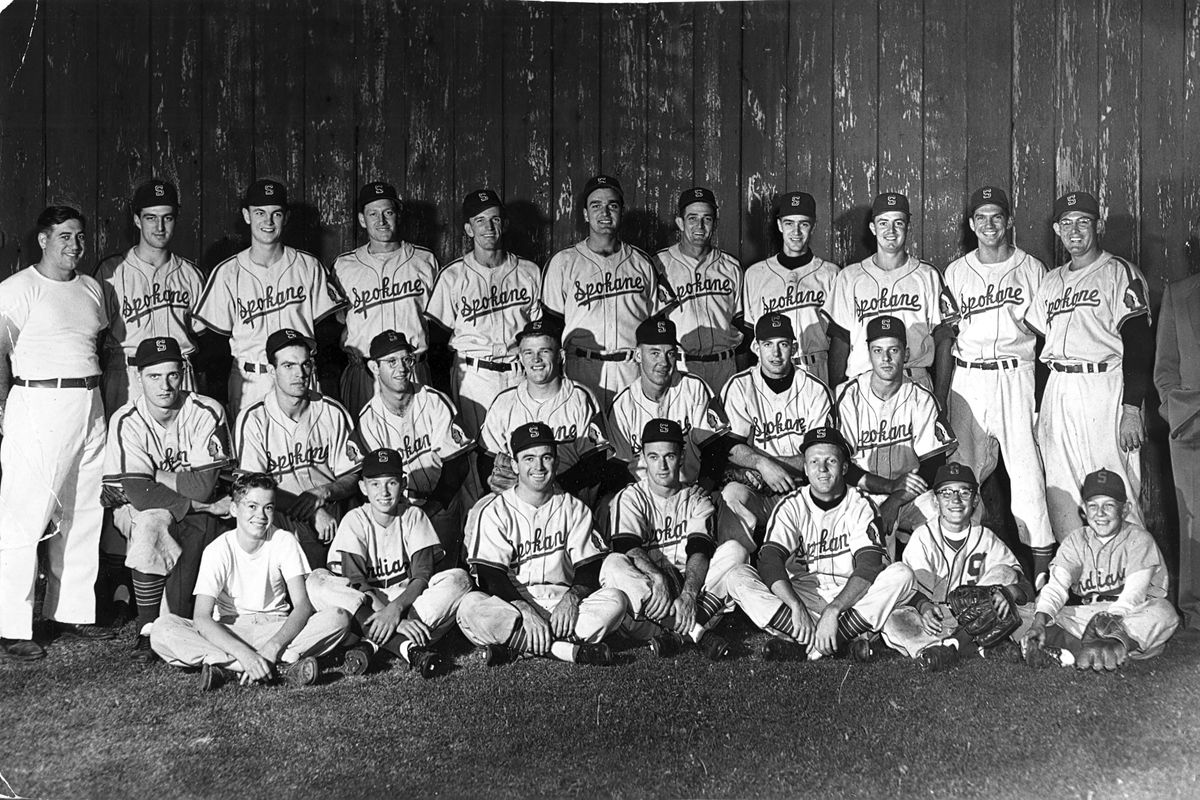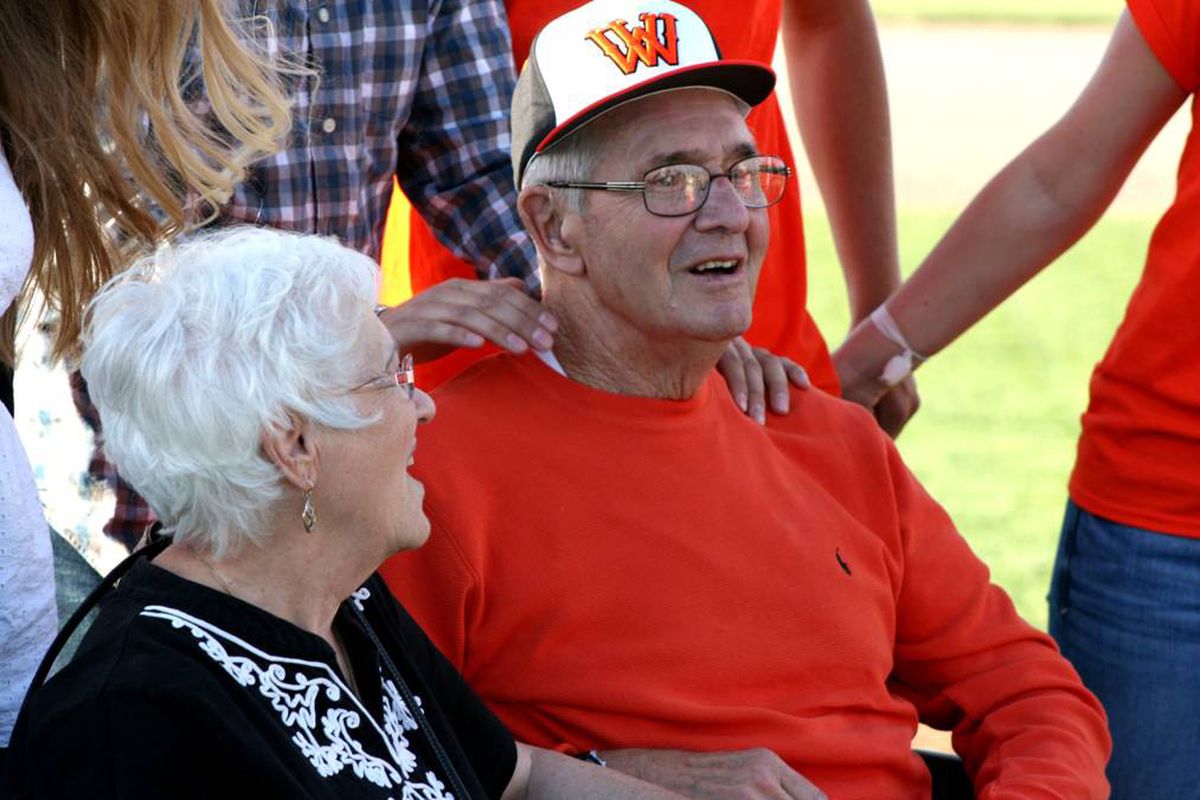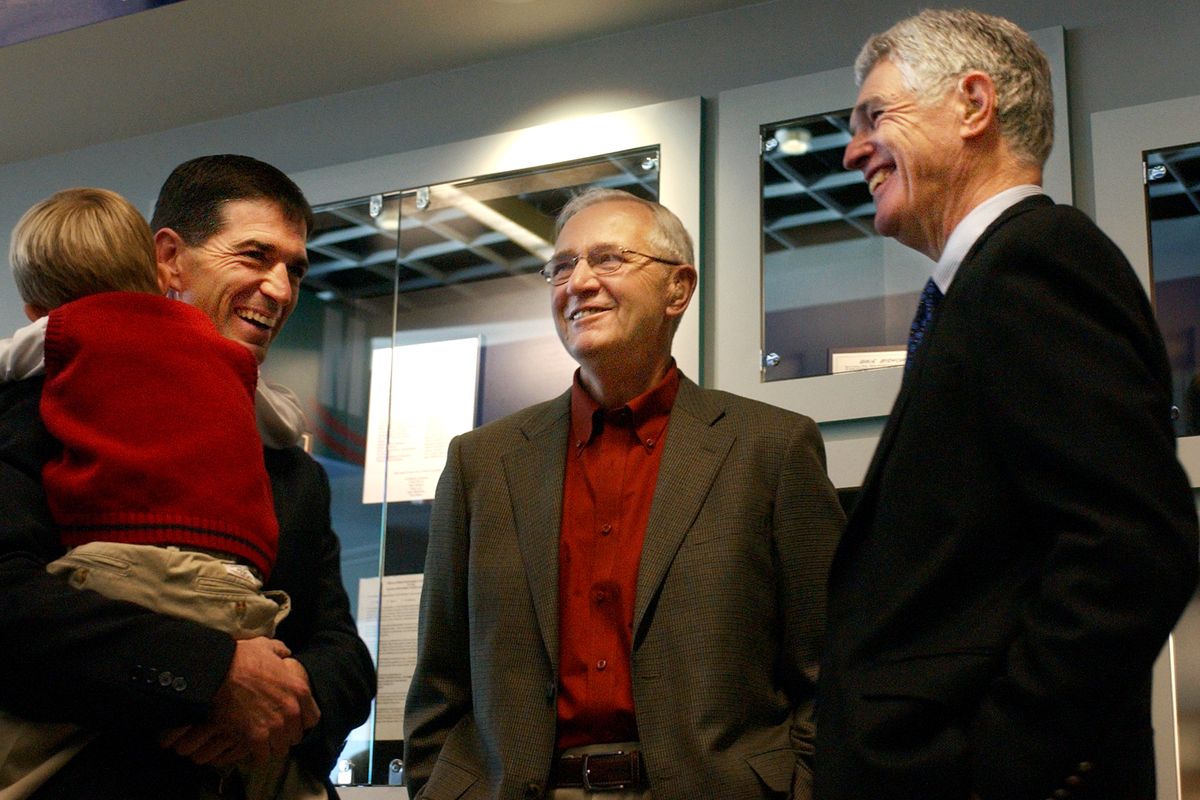Jack Spring, former major league pitcher, dies
Played for seven teams in the majors, coached West Valley to state championship
Jack Spring with his wife, Vona, at a ceremony last summer to name the West Valley baseball field "Jack Spring Stadium." (Steve Christilaw)
Jack Russell Spring, a left hander who pitched in the same bullpen as Satchel Paige and against Mickey Mantle before returning home and coaching West Valley to the Spokane area’s only state high school baseball championship in 1978, died on Sunday. He was 82.
Last summer, after advanced Parkinson’s disease had confined him to a wheelchair, Spring attended a ceremony for the naming of “Jack Spring Stadium” at West Valley High School where he spent 23 years as a teacher, coach and administrator.
Friends and family will return to West Valley on Aug. 22 at 11 a.m. for Spring’s memorial service.
“I think what defined my dad was his genuine care for others,” his youngest son, Chris Spring, said. “He was such a genuine and humble man. That’s why so many people have reached out to us. It’s been overwhelming.”
Spring had a major health setback on July 25, just two weeks after he celebrated his 63rd anniversary with his wife, Vona (McLean) Spring. Jack Spring then died on Sunday.
Bill Farr, 83, said he met Spring when they were freshmen at Lewis and Clark High School. It started 67-year-long friendship that ended only with Spring’s passing.
“He was a great family man and he was a great friend,” said Farr, who caught for Spring on LC’s baseball team.
Spring graduated from high school in 1951. He played one year at Washington State and then started a 17-year professional career that included stints with seven major league teams.
During his final year in 1969, Spring pitched under Spokane Indians manager Tommy Lasorda and had several other teammates who would reach the majors, including Bill Buckner and Bobby Valentine.
“When he retired, I was only 6 so my memories are minimal,” said Chris Spring, an assistant principal and athletic director at Medical Lake. “I remember bits and pieces of the 1969 season with the Spokane Indians.”
But he and his brothers traveled with their father in 2012 when the Boston Red Sox welcomed every living former player to the 100-year celebration of Fenway Park.
Spring took part even though he only pitched one inning for Boston in 1957. Spring came on in relief in a 7-5 loss to Baltimore where he pitched a scoreless ninth by inducing a ground out and throwing two strikeouts.
“He walks up to (229 game winner) Luis Tiant, and Tiant says, ‘Jack. I haven’t seen you for years,’” Chris Spring said. “To watch him with his buddies and to see him in his element, it gave me a lot of goose bumps to see him live that experience again.”
In an earlier interview with The Spokesman-Review, Jack Spring told the story of spring training that same year with the Red Sox in 1957 when hitting legend Ted Williams finally arrived at spring training. Spring had pitched in Triple-A in Miami the year before.
But here he was in Sarasota, Fla., watching the future hall-of-famer jogging out onto the field.
“I’m standing in left field and pretty soon he ran right up and nudged me and said, ‘Hi, Jack. How’d you like it in Miami last year?’
“I didn’t think he knew I was even alive. But he was a student of pitchers, and it didn’t matter if it was an opposing pitcher or one on his team – there was always the possibility he’d have to face you.”
The next season, Spring was pitching for the Washington Senators when he faced Williams, who hit a single.
After ending his baseball career, Spring started his second career in his hometown at West Valley where he coached the Eagles to the 1978 state championship.
His exploits as a baseball player and coach earned him induction into halls of fame for Washington coaches, administrators and the 2005 induction into the Inland Northwest Sports Hall of Fame with former Gonzaga great John Stockton and others.
Spring is survived by his wife, Vona, and five children: Vicki Spring-Brown, Teresa Jordan, John Spring, Mike Spring and Chris Spring and seven grandchildren.
Asked what his father would say about his own passing, Chris Spring said his father would say he’s a proud man.
“I think he would say he’s proud of his family first and proud of his accomplishments,” he said. “But the number one accomplishment would be the relationships he had with hundreds of people. That is what really defined him.”



